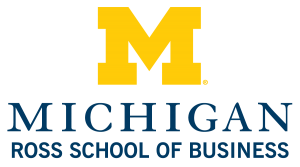This case explores social responsibility in the extended supply chain looking at the three spheres of sustainability — the environmental, social, and economic. It examines whether licensees are responsible for the actions of suppliers upstream, and if so, what the consequences are. Adidas Group, Nike, the Dallas Cowboys, and other sports apparel producers sourced products from PT Kizone. While Nike and the Dallas Cowboys stepped up and accepted responsibility for paying the workers part of the severance they were owed, adidas refused, indicating that it stopped orders with the factory 10 months before labor rights violations occurred. It later admitted it was accepting orders during that time. The case analyzes the responsibility of U-M as a buyer and the actions it can take to bring the extended supply chain in line with its code of conduct.
PT Kizone: Adidas Battles Allegations of Shirking Responsibility to Workers (A)
by: Ravi Anupindi
Core Disciplines: Base of the Pyramid, International Business, Leadership/Organizational Behavior, Operations Management/Supply Chain, Strategy & Management
Available Documents
Click on any button below to view the available document.
Make sure you are registered and/or logged in to our site to view product documents. Once registered & approved, faculty, staff, & course aggregators will have access to full inspection copies and teaching notes for any of our materials.
$3.95
If you need to make copies, you MUST purchase the corresponding number of permissions, and you must own a single copy of the product.
Electronic Downloads are available immediately after purchase. "Quantity" reflects the number of copies you intend to use. Unauthorized distribution of these files is prohibited pursuant to term of use of this website.
Teaching Note
This product does not have a teaching note.
Description
Teaching Objectives
After reading and discussing the material, students should:
- Determine if licensees are financially responsible for the actions of suppliers upstream.
- Analyze if claims should be apportioned across licensees where multiple licensees use the same supplier.
- Examine the responsibility of a university as a buyer.
- Describe which actions universities can take within the supply chain to ensure treatment is aligned with their workplace codes of conduct.
- Indicate if there are any other mechanisms to ensure that workers are protected in the extended supply chain.

